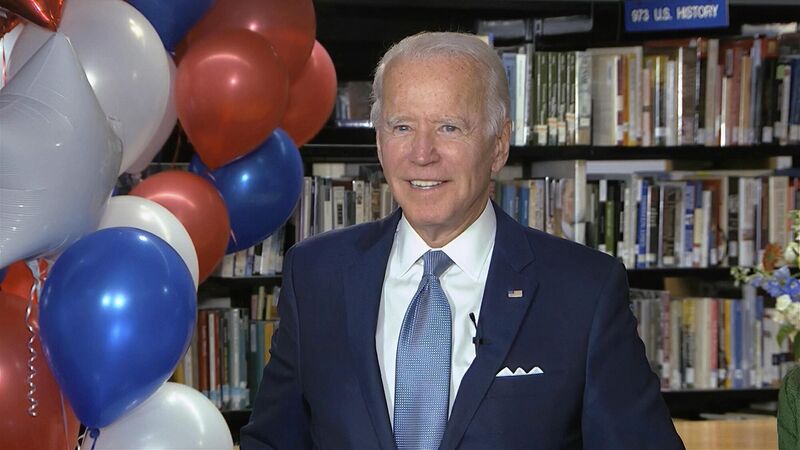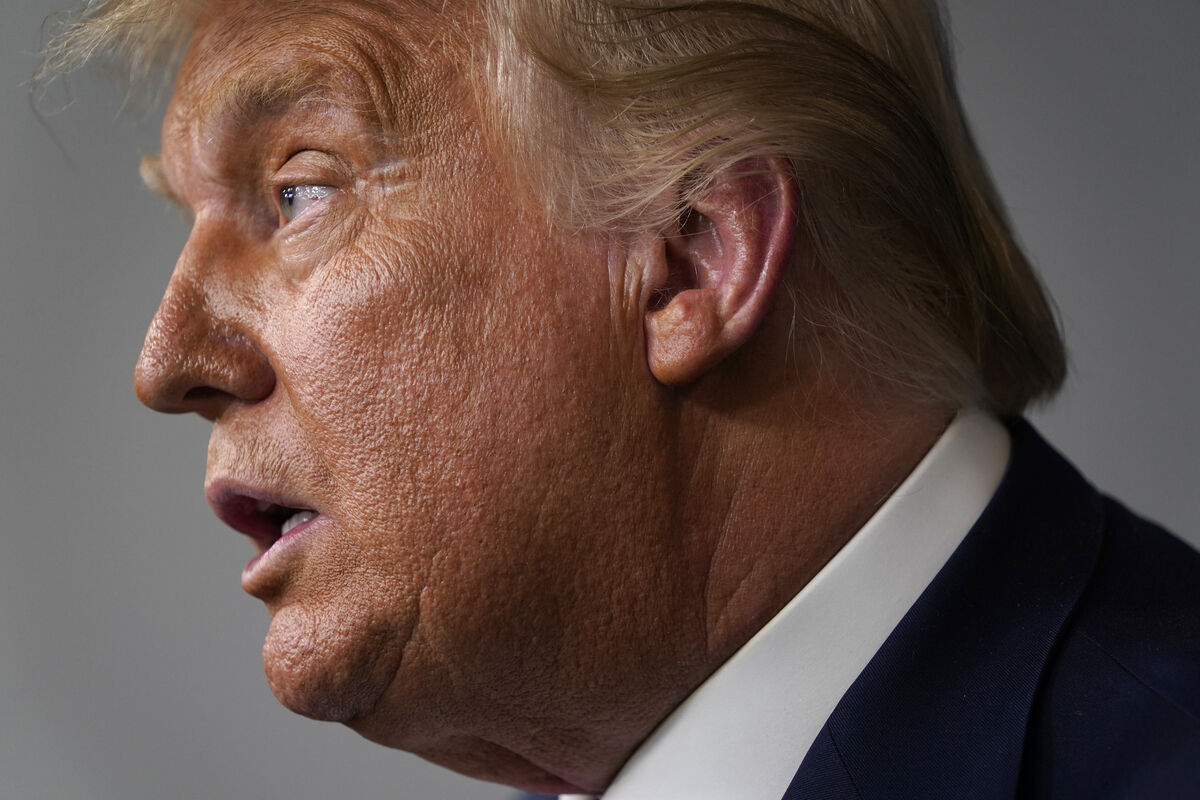John Whelan: No good news for Ireland in digital tax spat between US and EU

The 2020 US presidential election is now in the final straight and the policy leanings of both candidates have started to come clear. A victory for Democratic challenger Joe Biden or the reelection of President Donald Trump have implications for many countries, not least Ireland.
The Democratic National Convention last week was a virtual event, with party leaders praising former vice president and nice guy Mr Biden as their presidential nominee and telling viewers that the US can’t afford another four years of President Trump. This was quickly followed up by the nomination of Kamala Harris as his vice-presidential running mate, hoping to widen the appeal of the ticket to more voters.
Emotions aside, and ignoring the annoying tweets ham-fisted international affairs handling of President Trump, the US economy up to the outbreak of Covid-19 had the strongest GDP and productivity growth in 20 years, with unemployment at its lowest rate in 50 years. Even amid the global pandemic, 2020 was on pace to be one of the best for listings on Wall Street since the dot-com bubble.
Despite some rumblings of unbalanced trade, many businesses in Ireland also have good reason to reflect on the benefits of Trumpian economics. The exports to the US have risen much faster across the last three years.
Even in the Covid-hit six months to June this year, exports to the US have increased by 11% to reach an all-time high of just under €25bn. Foreign direct investment from the US has also ramped up under the Trump administration, at a rate reaching approximately twice that of years of President Barack Obama.
Economics aside, Mr Biden to date has been running ahead of President Trump in most national and swing-state polls, with a Wall Street Journal-NBC poll released last week showing Mr Biden with a hefty lead at this stage.
However, the Republican National Convention this week may benefit from a higher moral ground push from Cardinal Timothy Dolan of New York who has accepted an invitation to offer a prayer at the party's nominating convention.
Cardinal Dolan will offer the prayer at the convention as President Trump and Vice President Mike Pence are formally nominated as the Republican Party's candidates for a second term. This may offset some of the good press that Catholic educated Mr Biden gained from his nomination speech.
Unprecedented corporation tax cuts in 2017, his first year in office, gave a huge boost to balance sheets and drove Wall Street up to new heights, while the banks will not want to lose the gains from President Trump’s redrafting in 2018 of the Democrat enacted Dodd-Frank Act.
US steel and aluminium companies will not wish to see the end of tariffs on imports and the US auto unions will not support roll-back of plans for increased tariffs on car and truck imports from Europe.
The poor handling of the Covid-19 pandemic by the White House will however take some time to overcome and is likely to continue to damage the Republican campaign. There are signs that second wave outbreaks of the virus are hurting President Trump’s big play on a "strong America". In contrast to the boom on Wall Street in the technology stock market sector, the wider economy is suffering badly, with the US economy plummeting by almost 33% on an annualised basis in the three months to June.
Fortunately, the business sectors that are holding up through the economic downturn are markets where Irish businesses have a significant presence, including pharmaceuticals and information communication technology.

Pharmaceuticals make up the bulk of exports to the US and with the worldwide hunt for an anti-Covid vaccine and medical treatment, this sector is likely to continue its rapid growth. IT provides a key base in Ireland for the global giants, including Amazon, Facebook, Apple, and Google, driving social media and online platforms across Europe.
Picking through the Democratic manifesto, there are many aspects that will receive a warm welcome in Europe and may make for an easier route to an EU-US trade agreement that will help with economic recovery in the wake of the pandemic.
Mr Biden’s "clean energy revolution", much like the EU’s Green New Deal, would make the US economy reliant on clean energy, with net-zero emissions by 2050. A speedy return to the Paris Climate Agreement can be expected under a Biden administration.
But unpicking the aluminium and steel tariff and dropping the food and drink tariffs associated with the Airbus-Boeing dispute may not be so easily done. The tariff dispute was not just a Trumpian folly, there is a strong 'buy American' sentiment across the political divide. This was most evident in the recent bill to force Chinese companies to delist from the US stock exchanges, if they do not open their books to US regulators, which was passed unanimously. There was also cross-party support over the past few years on the wider tariff war with China.
The EU has contacted the US trade representatives in recent weeks to outline ways in which the US and EU could work together to boost economic recovery amid the pandemic. However, it is unlikely that any progress will be made in the remaining time before the November presidential election.
This is unlikely to change under a Democratic president and may present the EU with an uphill battle in negotiating a fresh trade deal with a new US administration. At stake is which country has the right to tax digital companies whose operations now span the world.
The looming spat may spell bad news for Ireland and also exposes divisions within Europe as countries remain split over how to force companies like Google and Amazon to pay more into national coffers.
Despite support from many EU countries, Ireland and some Nordic countries stopped previous efforts to create an EU-wide tax which they argued would have put their export-led economies at a disadvantage.
There are however many unknowns that still remain to be clarified in the next few weeks and all sorts of breaking news can change the pulse of the election. Mr Biden’s policies on fracking, automatic firearms, health care, and immigration could swing key votes.
In the TV debates with President Trump, Mr Biden will face issues over the trade war with China, the Iran nuclear deal, membership of the World Health Organisation, and Russian interference.
Finally, there is the question of virtual voting and how postal voting will stand up to President Trump's attacks.
Businesses in Ireland, big and small can be expected to stay neutral and straddle the political divide. They will have to do trade under whatever regime will emerge.



